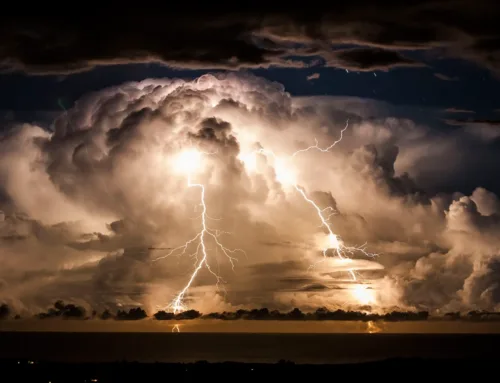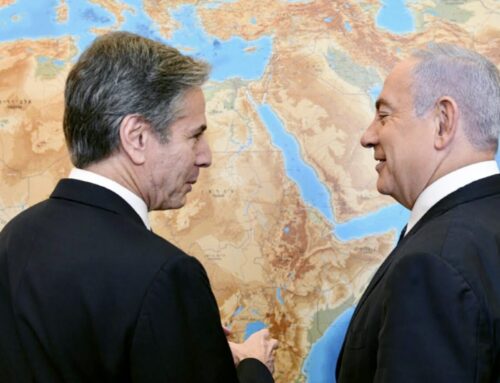Why is this information here? Since it includes extremist groups, known cults, and false faiths? Because while cults such as Jehovah’s Witness and Islamist groups are the focus of this brief survey true Christianity is being persecuted around the world. And Biblical Christianity while not at this time in world history included in an out and out ban against teaching the actual Word of God, the Bible and true Christians are under attack continually to silence us, and if not silence the truth of the Scriptures to make so much noise, have so much propaganda and indoctrination elements going on in society — TV, film. music, so-called news reporting, books, social media, political arena, schools, every agency and institution coming under attention and attack if true Christianity is visible, vocal, or proving vital. If the message of the gospel, the true Bible is taught is getting through to people this poses a threat to the world and all those aforementioned agencies.
Make no mistake. Its more than 41 countries going on here in pursuit of banning various religions. And it’s more than cults and extremist groups coming under surveillance, scrutiny, and submission under severe penalty to the wiles of governments.
We’re in the throes of the greatest war ever fought on earth. The spiritual war. Between God’s rightness, God’s Word, God’s Son, the Lord Jesus Christ, the Holy Spirit, and all those truly transformed and disciples of the Lord Jesus Christ vs. the legions of those all over this world in utter darkness. Serving this world, themselves, and thus serving the devil. There are no other options. This is how it is. Whether folks like it, agree with it or not, or even believe it. The evidence of the truth of the Word of God is plain to see, to hear if only people would pause and allow themselves to truly see, to truly hear if for the first time in their lives.
The din of sin makes every effort to drown out the truth and light of God, of Jesus, of the Holy Spirit, and of the Bible.
A subtle to an increasingly not subtle whatsoever ban on the truth of God, the truth of Jesus, the truth of the Holy Spirit, and the truth of the Word of God has been ongoing and escalating. Yes, and right here in America. In the United Kingdom. In every so-called free and democratic Western nation.
Ken Pullen
Monday, November 22nd, 2021
ACP — A Crooked Path
41 countries ban religion-related groups; Jehovah’s Witnesses, Baha’is among the most commonly targeted
November 15, 2021
Reprinted from Pew Research Center
Government restrictions on religion take many forms around the world. Particularly restrictive governments often limit religious expression by banning certain groups – including entire faiths, social movements, or political organizations that have ties to religion.
In fact, 41 countries – or around a fifth (21%) of those evaluated – banned at least one religion-related group in 2019, according to a Pew Research Center analysis of laws and policies in effect in 198 countries in 2019, the most recent year for which comprehensive data is available. Jehovah’s Witnesses and Baha’is were among the most frequently banned groups.
The Middle East-North Africa region had the highest share of countries (55%, or 11 out of 20 countries in the region) with bans on religion-related groups in 2019. Asia and the Pacific – the largest region in the study, with 50 nations – had the greatest number of countries with bans (17 out of 50 countries, or 34% of the region). Sub-Saharan Africa had eight countries with bans (representing about 17% of the 48 states in the region), Europe had three (or about 7% of the region’s 45 countries) and the Americas had two nations with such bans in place (representing about 6% of the region’s 35 countries).
This analysis is based on the Center’s most recent restrictions on religion report, which examines the extent to which governments and societies impinge on religious groups and practices. Data is collected from a wide range of sources, including the U.S. Department of State’s International Religious Freedom reports. For the purposes of this analysis, the term “banned” refers to official prohibitions that prevent a group from legally operating in a country.
Many of the groups listed as “banned” in the sources consulted also count as “banned” in this analysis. However, some are not counted, including those that the U.S. State Department labels “foreign terrorist organizations” or those that have been shown to engage in systematic violence. (While authorities often cite security concerns, such as a group’s alleged links to violence, as a reason for imposing a ban, some governments use security concerns to target groups or people that pose a political threat, or they label religious groups as being “deviant” or a “cult” when these groups do not adhere to what the authorities deem to be acceptable religious practices. Those types of bans are included in this analysis.)
In some cases, governments may restrict or target specific groups within their borders but not formally ban them; these groups are not counted as banned. The source documents also may not cover every religion-related ban in the world or capture every country in which a group is banned.
The Center’s annual restrictions on religion study also examines other types of government limits on religious activity, such as laws that curtail the religious activity of allowed groups; official actions and policies that favor certain groups over others; and harassment of certain groups or individuals that can amount to physical violence. Based on the extent of these restrictions, the report sorts countries into categories ranging from “very high” to “low” levels of government restrictions.
Among the 41 nations that banned religion-related groups in 2019, 21 also had “very high” government restrictions on religion, accounting for 91% of the countries in the report with “very high” government restrictions on religion.
Commonly banned groups
Three groups faced bans in multiple countries in 2019: Jehovah’s Witnesses, who identify as Christian but differ from other Christians in some ways; Baha’is, a faith originating in Iran that preaches human unity and the continuity of all religions; and Ahmadis, a group with roots in India that derives tenets from Islamic teachings.
Jehovah’s Witnesses were banned in eight countries spanning the Asia-Pacific region, Europe and the Middle East-North Africa region. In Russia, for example, a 2017 decision by the nation’s Supreme Court banned Jehovah’s Witnesses, criminalizing their activities as being “extremist.” In 2019, hundreds of Jehovah’s Witnesses in Russia faced detentions, travel restrictions, investigations and raids on their homes.
Baha’is were banned in six countries in the Asia-Pacific and Middle East-North Africa regions in 2019. In Iran, Baha’is faced multiple restrictions and were barred from certain types of work, especially in the food industry, because they were considered “unclean.” Members of the faith also were blocked from government jobs, higher education institutions and receiving national pensions. They could not inherit property or have their marriages fully recognized.
Egypt has had long-standing bans on both Baha’is and Jehovah’s Witnesses, denying them benefits and the ability to perform routine tasks – such as banking or registering for school – that are afforded to recognized groups. In 2019, Baha’i marriages were not legally recognized, and the country prohibited adherents from designating their religious affiliation on national identity cards. Baha’is and Jehovah’s Witnesses in the country were not permitted to have places of worship or import religious literature. Members of these groups reported that the Egyptian government allowed them to practice their faith in private in small numbers, but that authorities prevented them from holding public religious gatherings.
Ahmadis, meanwhile, were banned in four countries in 2019, according to the sources used in this study. Pakistan had laws that prohibited Ahmadis from calling themselves Muslims and banned them from preaching or proselytizing. Ahmadi community leaders in Pakistan reported that 11 individuals were charged for practicing their faith and that six of them were arrested on blasphemy charges. According to Ahmadi leaders, some Pakistani government agencies also used a 2018 court decision to deny Ahmadis national identity cards.
In Brunei, all three groups – Jehovah’s Witnesses, Baha’is and Ahmadis – were banned in 2019 as they were considered “deviant.”
Types of bans and enforcement levels
In some countries, only certain registered religious groups are officially recognized, and it is illegal to adhere to any other religious faith.
In Eritrea, only four religious groups are officially recognized: the Eritrean Orthodox Church, Sunni Islam, the Roman Catholic Church and the Evangelical Lutheran Church of Eritrea. Other religious groups cannot register and are treated as illegal. For instance, the government only permits Sunni Islam and bans all other practices of Islam.
Uzbekistan criminalizes activities by unregistered religious groups, which are considered to be “illegal,” and designates certain Islamic groups to be extremist and therefore “prohibited.” Members and organizers of illegal religious groups can be imprisoned up to five years, and those in prohibited groups can be jailed for up to 20 years. As of 2019, authorities in Uzbekistan had criminalized membership in 22 religious organizations, citing threats to the government’s secular authority and the need to prevent “incitement of interreligious instability and hatred,” according to the U.S. State Department.
Although the government of Uzbekistan announced the closure of a prison known for incarcerating and torturing religious prisoners, thousands were still being held in 2019 on “fabricated” charges for extremism or membership in banned groups, according to the U.S. Commission on International Religious Freedom. Despite these ongoing issues, the government made other notable moves to reduce restrictions, such as enforcing a prohibition on raids on religious communities.
Meanwhile, the Chinese government criminalizes groups that it considers to be “cult organizations.” These include the Falun Gong movement and several Christian groups, which face detentions and “disappearances,” and in some cases torture and death, according to the U.S. State Department. In 2019, several reports also detailed the forcible extraction of organs from religious prisoners – mainly from Falun Gong practitioners – that for years were conducted for the country’s organ transplant system.
In some countries, practices considered to be part of folk or indigenous religions are outlawed. In Cameroon, Central African Republic and Tanzania, for example, practicing witchcraft is illegal.
In many countries, repercussions for membership in banned religious groups can include detention, raids and seizure of property. But a few countries may formally ban groups yet tolerate them in practice. In Jamaica, for example, the country still has colonial-era laws that criminalized the Afro-Caribbean religious practices of Obeah and Myalism, but they are not enforced. While the Bahamas also outlaws Obeah practices, the penalties are not always enforced there either.

Dennis Christensen, a Danish Jehovah’s Witness accused of extremism, is escorted into a courtroom to hear his verdict in the town of Oryol on February 6, 2019. (Photo by Mladen ANTONOV / AFP) (Photo credit should read MLADEN ANTONOV/AFP via Getty Images)
In some countries, governments cite security as a rationale for banning political or social groups with religious affiliations. Sometimes the groups are opposition movements to parties currently in power.
In Morocco, a social movement with Islamic roots called the Justice and Charity Organization is banned. The group rejects King Mohamed VI’s spiritual authority and, although unregistered, is able to operate and hold events and demonstrations with some interference from the government.
In Bahrain, a Sunni-governed country where Shiite leaders have faced routine detention and harassment, the government banned the largely Shiite Al-Wefaq political opposition party in 2016. In 2014, the country had also banned the Islamic Ulema Council, a group of Shiite clerics.








Leave a Reply, please --- thank you.